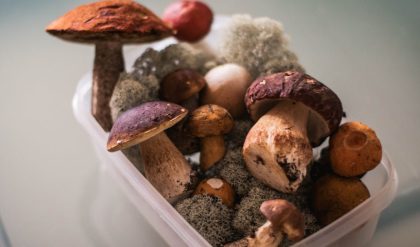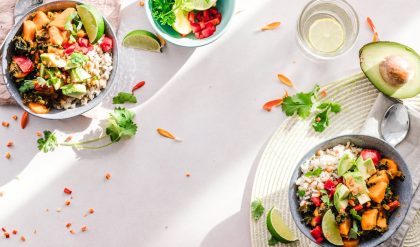When it comes to food, many common ingredients are often labeled as “villains” due to their potential to contribute to weight gain, such as soft drinks, bread, sweets, and pasta. These foods are frequently criticized for increasing body fat and contributing to various health issues. To counteract these negative effects, many people turn to gluten-free diets, hoping to enhance their health and quality of life. But is this dietary approach truly beneficial for everyone, or is it primarily necessary for those with specific medical conditions? Let’s delve deeper into the gluten-free diet and its effects on the body, especially for individuals without gluten intolerance or celiac disease.
What is Gluten?
Gluten is a type of vegetable protein found in grains like wheat, barley, rye, and spelled wheat. It is the substance that gives dough its elasticity, allowing it to rise and maintain structure when baking. Gluten is what gives many baked goods their soft, chewy texture, and it is present in foods like bread, cakes, pasta, beer, and biscuits.
While gluten is a protein and not a carbohydrate, it is commonly misunderstood due to its frequent presence in carbohydrate-rich foods like bread and pasta. Gluten is a combination of two proteins: gliadin and glutenin, which are typically found together with starch in wheat and other grains. For most people, gluten is harmless, but for others, especially those with certain medical conditions, it can cause significant health issues.
Gluten Sensitivity and Celiac Disease
Celiac disease is an autoimmune disorder that causes the immune system to react abnormally to gluten. When individuals with celiac disease consume gluten, their body mistakenly attacks the small intestine, causing inflammation and damage to the intestinal lining. This damage impairs nutrient absorption, leading to malnutrition and a variety of symptoms, including diarrhea, fatigue, irritability, abdominal pain, and skin rashes. In severe cases, celiac disease can lead to more serious complications like osteoporosis or even intestinal cancer.
While celiac disease is relatively rare, it’s important for those diagnosed with it to strictly avoid gluten-containing foods. For individuals without celiac disease or gluten sensitivity, the decision to adopt a gluten-free diet is often a matter of personal preference rather than medical necessity.
The Gluten-Free Diet: What’s In and What’s Out?
The gluten-free diet is essentially a diet that excludes all forms of gluten, which means cutting out most foods made with wheat, barley, rye, and other gluten-containing grains. While this dietary restriction is crucial for individuals with celiac disease, it’s also been embraced by some people seeking to lose weight or improve their overall health. But does avoiding gluten necessarily lead to a healthier lifestyle? Let’s explore what’s allowed and what’s restricted on a gluten-free diet.
Foods to Avoid on a Gluten-Free Diet
If you’re following a gluten-free diet, it’s important to carefully consider what foods you’re eating to ensure they don’t contain any hidden gluten. Some foods to avoid include:
- Beer and alcoholic beverages: Many alcoholic drinks like beer, gin, vodka, and whiskey are made from grains that contain gluten. However, there are gluten-free alternatives available, such as gluten-free beer made from sorghum or rice.
- Breads and baked goods: Traditional bread, pastries, cakes, and crackers are made from wheat, which contains gluten. You’ll need to avoid these or opt for gluten-free versions made with alternative flours like rice, almond, or oat flour.
- Condiments and sauces: Common condiments like ketchup, mustard, and soy sauce may contain gluten or be processed in facilities that handle gluten-containing products.
- Wheat-based pasta: Pasta made from wheat contains gluten, so gluten-free pasta made from rice, corn, or quinoa is an excellent alternative.
Some foods may contain gluten in trace amounts due to contamination, such as oats that might have been processed in facilities that also handle wheat. It’s important to carefully read food labels to check for any signs of gluten contamination.
Foods That Are Safe and Gluten-Free
Luckily, many nutritious and delicious foods are naturally gluten-free, meaning they can be enjoyed as part of a balanced diet. Some gluten-free options include:
- Rice and its derivatives: Plain white rice, brown rice, rice noodles, and rice cakes are all naturally gluten-free.
- Corn and corn-based products: Corn tortillas, cornmeal, and popcorn are all gluten-free options.
- Potatoes: Fresh potatoes (not processed or seasoned with gluten) are naturally gluten-free and a versatile addition to meals.
- Cassava and manioc: These root vegetables are commonly used to make gluten-free flours and starches.
- Fresh fruits and vegetables: All fresh produce is gluten-free, making them a great option for filling your plate with nutrient-dense foods.
- Natural juices and wines: Most wines and freshly pressed juices are gluten-free, but it’s essential to read labels to avoid any potential cross-contamination.
Adopting a gluten-free diet doesn’t have to be restrictive, as there are plenty of nutritious and tasty foods available. The key is to focus on whole, unprocessed foods and carefully read labels to ensure that the items you choose are truly gluten-free.
Who Should Follow a Gluten-Free Diet?
The primary group of people who need to follow a gluten-free diet are those with celiac disease or non-celiac gluten sensitivity. These individuals experience significant health issues when consuming gluten and must strictly avoid it in all forms. However, if you don’t have celiac disease or gluten intolerance, it may not be necessary to follow a gluten-free diet, and doing so could even lead to potential nutrient deficiencies if you don’t carefully plan your meals.
For those without gluten-related medical conditions, some people choose a gluten-free diet as a weight-loss strategy, believing that eliminating gluten-rich foods will help them shed pounds. However, this approach is not always effective and can sometimes be counterproductive. Gluten-free processed foods, such as gluten-free cookies or snacks, can still be high in sugar and unhealthy fats, so it’s important to make mindful food choices.
If you’re considering going gluten-free for weight loss or health reasons, it’s important to seek the advice of a nutritionist who can guide you in making balanced and sustainable dietary choices.
Gluten-Free Diet for Weight Loss: Is It Effective?
While some people report weight loss on a gluten-free diet, this may be due to the reduction of highly processed foods and refined carbohydrates that are often found in gluten-rich foods. When you eliminate gluten, you may naturally cut out foods like sugary baked goods, processed snacks, and fast food, which can lead to a healthier diet overall. However, simply cutting out gluten does not guarantee weight loss.
A gluten-free diet can still include high-calorie, processed foods that may contribute to weight gain if consumed in excess. For sustainable weight loss, it’s essential to focus on portion control, balanced meals, and regular physical activity. Consulting with a healthcare professional or nutritionist can help you create a plan that aligns with your goals.
Precautions to Take When Following a Gluten-Free Diet
For individuals with celiac disease, it’s crucial to be vigilant about gluten contamination. Even trace amounts of gluten can trigger an autoimmune response, so it’s important to read all food labels carefully and avoid any foods that could contain hidden gluten. Cross-contamination can occur in many ways, from shared cooking utensils to food processing facilities that handle both gluten and gluten-free products. Some additional precautions include:
- Avoid shared cooking tools: If you’ve used a utensil or cooking surface with gluten-containing foods, make sure it’s thoroughly cleaned before use with gluten-free ingredients.
- Be mindful of packaged foods: Always check labels for gluten-containing ingredients, even in products you wouldn’t expect, like processed meats or frozen vegetables.
- Consider dedicated kitchen tools: If you live with someone who consumes gluten, it may be helpful to have separate kitchen tools, utensils, and storage spaces for gluten-free foods.
Common Foods to Avoid Due to Gluten Contamination:
- Cheeses: Pre-packaged processed cheeses may contain gluten, so it’s best to choose pure cheese or check for gluten-free certification.
- Frozen foods: Certain frozen foods, like frozen potatoes or pre-packaged meat products, may contain hidden gluten or be cross-contaminated during processing.
- Instant noodles and powdered drinks: Some instant noodles and powdered drink mixes contain gluten or are processed in facilities with gluten-containing products.
Conclusion: Is the Gluten-Free Diet Right for You?
The gluten-free diet is essential for individuals with celiac disease and non-celiac gluten sensitivity. For those without gluten-related medical conditions, the decision to follow a gluten-free diet should be made carefully and with professional guidance. While a gluten-free diet can promote better health for some people, it is not a magical solution for weight loss or improved well-being. If you’re considering going gluten-free, it’s best to seek the advice of a nutritionist who can help you make informed and balanced dietary choices.
If you suspect you have gluten intolerance or are experiencing symptoms like gas, abdominal pain, or skin rashes, it’s important to consult with a healthcare professional for proper testing and guidance. A dietitian can also help you ensure you’re still getting all the nutrients your body needs while avoiding gluten.
Disclaimer: This article is for informational purposes only. Always consult with a healthcare provider before making significant changes to your diet. For more health and wellness tips, explore our comprehensive guide on gluten-free diets and other healthy eating options on Best Sports Daily.
Feel free to reach out to us for any questions or further guidance on adopting a gluten-free diet or improving your overall health with gluten-free options, healthy habits, and more.


